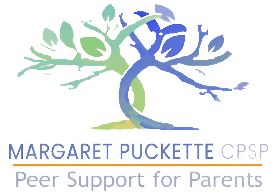
A: If your child is doing something dangerous to him or herself, or others (including a pet), or property, and if you can’t manage it or stop it, call. “Dangerous” means threatening, harmful, or abusive. Emergency 911 dispatchers, police, and mental health crisis workers all encourage anyone to call, anytime. You will not bother them. I once visited a 911 facility and got a chance to ask to speak with the staff and this was their message. They described the many ways they can respond when a child or teen “blows out,” runs, or becomes suicidal.
Once you call the police:
Advice from the Federation of Families for Children’s Mental Health (www.ffcmh.org).

2. Provide only facts as quickly and clearly as possible.
EXAMPLE: I am calling from [address]. My 13-year-old son is threatening to cut his sister. He has [diagnosis] and may be off his medication and under the influence of alcohol. There are 4 of us in the house: my mother, my son and daughter, and myself.
3. Identify weapons in the vicinity or in your child’s possession and alert the dispatcher
4. Be specific about what type of police assistance you are asking for.
EXAMPLE: We want to protect ourselves and get my son to the emergency room for a psychiatric evaluation, but cannot do that by ourselves. Please send help.
5. Answer any questions the dispatcher asks. Do not take offense when you are asked to repeat information. This is done to double-check details and better assist you.
6. Offer information to the dispatcher about how an officer can help your child calm down.
7. Tell the dispatcher any addition information you can about what might cause you child’s behavior to become more dangerous—suggest actions the officer should avoid.
EXAMPLE: Please don’t tell him to stand still. He cannot hold his body still until he calms. If you can get him to walk with you, he can listen and respond better. He is terrified of being handcuffed. Please tell him what he needs to do to avoid being handcuffed.
REMEMBER: Your primary role in this situation is to be a good communicator. Your ability to remain calm and provide factual details is critical the outcome of this situation.”
– – – – – – –
What is your local police force like? Call the non-emergency line and check, ask questions about how police typically respond to situations where a child or teenager is diagnosed with a mental disorder and out of control.
In many parents’ experiences, including mine, the police were very helpful. Others have had poor experiences. Some said their child calmed down and appeared normal once the police arrived, and they felt the police assumed they were exaggerating. Some said the police only aggravated the crisis, and in a very few cases, the encounter lead to tragedy.


Recent Comments